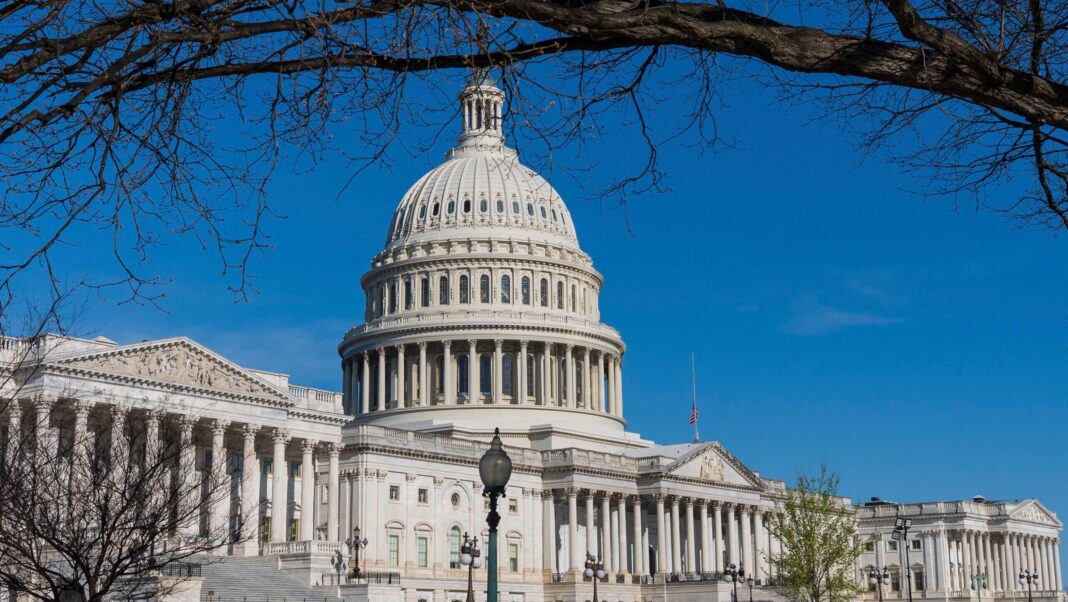Legislative Changes in D.C.: A Closer Look
The recent passage of two significant bills by the House marks a pivotal moment in how youth crime is addressed in the District of Columbia. As congressional Republicans align themselves with President Donald Trump’s hardline stance on crime, these legislative changes propose substantial alterations to local law enforcement and judicial procedures.
The DC Crimes Act
One of the key pieces of legislation, known as the “DC Crimes Act,” aims to redefine the age of a youth offender from 24 to 18. This bill also mandates that sentences for juveniles be at least equivalent to the mandatory minimums imposed on adult offenders. Such a change effectively overrides local D.C. policies that prioritize rehabilitation over punitive measures for younger offenders. Additionally, the act requires the D.C. attorney general to set up a public website to disseminate statistics on youth crime, enhancing transparency in how juvenile offenders are prosecuted.
Legislative Support and Opposition
The “DC Crimes Act” passed with a vote of 240-179, reflecting a surprising level of bipartisan support — 30 Democrats broke ranks with their party to vote in favor. In contrast, the second bill, the “D.C. Juvenile Sentencing Reform Act,” passed by a much narrower 225-203 margin, receiving support from just eight Democrats and one Republican, Rep. Thomas Massie of Kentucky, who opposed both legislative measures.
Oversight and Local Governance
The backdrop of this legislative push complicates issues of governance and autonomy for D.C. The ongoing debate is buttressed by the historical context of the Home Rule Act of 1973, which provided residents with some control over their local governance. However, the current political climate challenges that self-governance more than at any time in recent history. Following significant crime concerns, the city has seen the presence of National Guard troops and federal law enforcement, prompted by an emergency order from President Trump that has since lapsed.
Lawsuit and Legal Controversies
In tandem with these developments, the city has filed a lawsuit contesting the federal intervention of the National Guard. The Biden administration’s recent filing argues against the temporary injunction sought by D.C., indicating that the mayor acknowledges the success of federal actions. This legal battle has drawn support from 23 states backing the administration and 22 states siding with the district.
The Senate’s Role and Future Prospects
As these bills head to the Senate, their future remains uncertain. Any advancement will likely hinge on garnering support from Democratic senators, who are critical of Trump’s aggressive intrusions into local governance. Prominent Democrats are vocal about their fight to preserve the self-governance rights of D.C. residents. Texas Rep. Jasmine Crockett criticized the federal moves as “shameful,” arguing they undermine the electorate’s rights to choose their representatives.
Perspectives from Criminal Justice Advocates
Criminal justice reform advocates express deep concern with Congress stepping into local matters, especially regarding youth sentencing, which has been extensively studied. Darby Hickey from DC Justice Lab emphasized that such overreach runs counter to American democratic values by diminishing the local electorate’s capacity to manage its affairs. Meanwhile, Misty Thomas Zaleski, the executive director at the Council for Court Excellence, highlighted the risk presented by a separate Republican proposal to alter the Judicial Nomination Commission, suggesting this move could undermine bipartisan success achieved over decades.
Political Ramifications
Ankit Jain, D.C.’s shadow senator, signaled that future efforts will prominently focus on persuading Senate Democrats to oppose these bills. He articulated that success in passing these measures could set a precedent for Republicans to target laws in other Democratic-led cities, using D.C. as a foundational example.
Ongoing Legislative Actions
The House is poised to discuss additional D.C. criminal justice bills soon, indicating a sustained focus on reshaping the legal landscape in the capital. While D.C. residents have the right to elect their local officials, their governance remains subject to congressional oversight, complicating local efforts to pass laws reflective of community needs and perspectives.
Earlier this year, the House’s decision to cut $1.1 billion from D.C.’s budget, despite it being generated through local taxes, further underscores the intricate balance of power between federal and local authorities. Democratic minority leader Rep. Hakeem Jeffries has called for these funds to be restored, emphasizing the detrimental impact of such fiscal measures on the city’s capability to function effectively.
This situation illustrates the ongoing tensions in D.C. between local autonomy and federal oversight, a dynamic that continues to evolve as legislative actions unfold.



